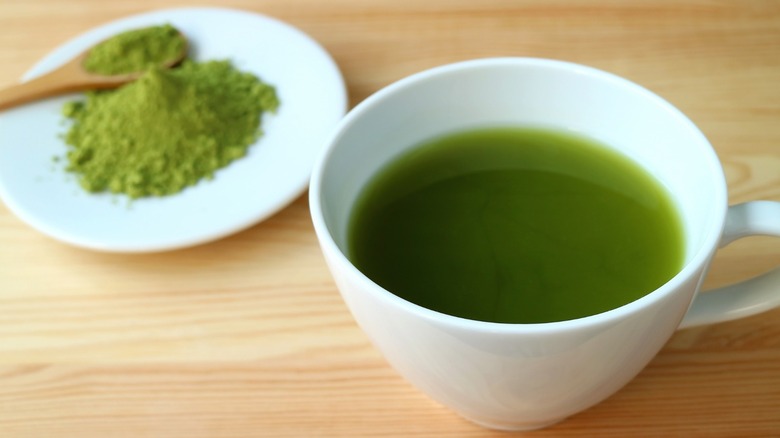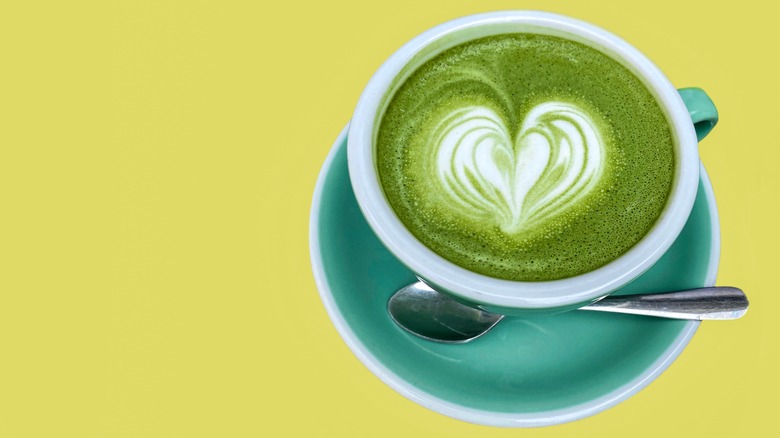The Chemical That Gives Matcha Its Natural Sweetness
Tea lovers are well aware of the countless varieties of the steeped beverage. From black to white to oolong to chamomile, sipping tea is a refreshing, soothing, and healthy way to kickstart your day or unwind after a long one. History shows that people have been consuming tea for millennia, according to Smithsonian Magazine. The first tea drinkers were Chinese emperors, and the libation eventually made its way around the world. There is one type of tea, in particular, however, that has been skyrocketing in popularity, mainly due to its one-of-a-kind form, appealing hue, culinary versatility, and pleasant palate.
Matcha is a bright green-colored tea made from young green tea leaves that are dried and ground into a fine powder. With origins in Japan, matcha has become a staple in cafés and kitchens everywhere — and for good reason. Since it's jam-packed with antioxidants and nourishing minerals, matcha offers a slew of benefits, including the ability to lower blood pressure and cholesterol levels, prevent cancer, and safely keep the drinker focused and vigilant, per WebMD and Healthline. Many people enjoy matcha for its naturally sweet flavor, which happens to be the direct result of a certain amino acid.
L-theanine is responsible for matcha's inherently sweet notes
Time for a quick chemistry lesson! Don't worry; we promise it'll be a fun one, especially for matcha enthusiasts. If you've ever wondered how matcha gets its sweet, earthy taste (without the addition of any sugars), the science behind it is quite fascinating. Matcha contains the amino acid L-theanine, which not only produces the tea's iconic sweetness, but also promotes restful sleep, helps minimize stress, and improves the body's immunity against disease, according to Matcha.com. In fact, matcha is widely considered to be the top source of L-theanine, containing around five times the amount of ordinary green tea.
Nadia De La Vega, Director of Tea Sustainability and Content at DAVIDsTEA, told Mashed that matcha undergoes a unique growing process in which the tea leaves are shaded, ultimately inhibiting photosynthesis. This technique increases the leaves' concentration of both chlorophyll and L-theanine, which is known for its power to create feelings of calm and mindfulness. Matcha can be sipped hot, iced, or even mixed into frothy lattes and smoothies. Since matcha is powdered, it can also be easily infused into recipes for baked goods, ice cream, fudge, and other indulgences.

